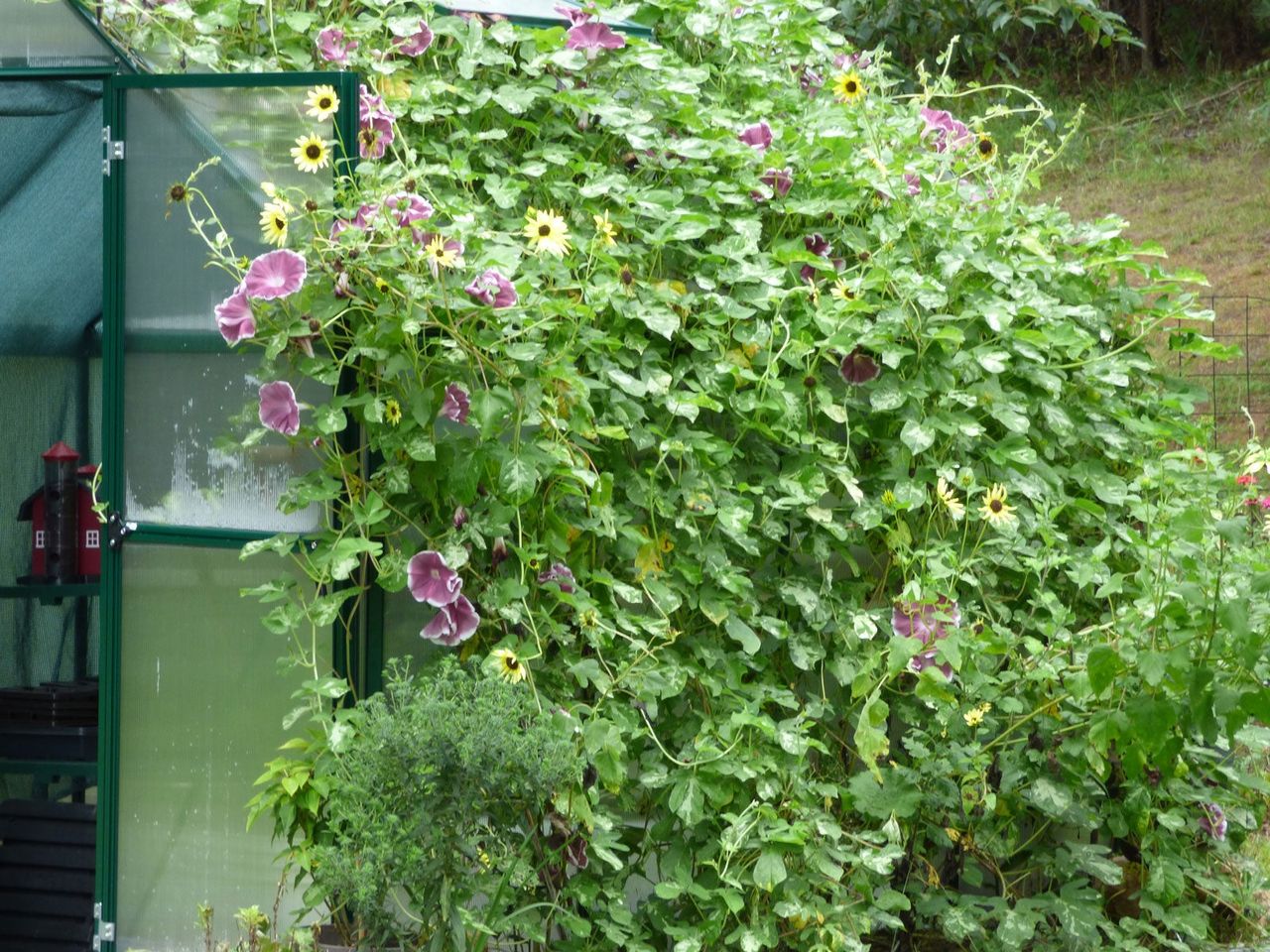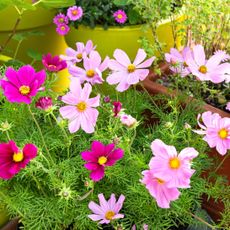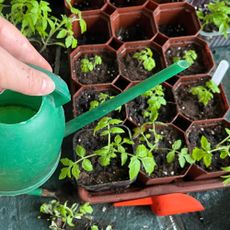Best Vines For Greenhouse Shade – Using Annual Vines To Shade A Greenhouse


Using annual vines to shade a greenhouse is a pretty way to do something practical. Many vines grow quickly and will cover the side of your greenhouse in no time. Choose the best plants for your local climate and to provide the right amount of shade and cooling in your greenhouse.
Using Vines for Greenhouse Shade
A greenhouse is designed to be warm and sunny. It’s where you can grow plants even in the depths of winter. This means that in summer it can turn into an oven. You could buy shade cloth to put up in the warmer months, but isn’t very attractive, and it may not be adequate either, especially in very warm and sunny climates.
Instead, try using vines and tall plants to provide a natural screen. Cooling a greenhouse with vines will take the temperature down a notch, but it will also add an element of ornamental beauty. Your manmade structure will look more natural with an organic screen.
Best Vines that Shade Greenhouses in Summer
Shading a greenhouse with vines is easy if you choose the right varieties. Avoid invasive species, though, many of which are vines. Check with your local county extension to find out which vines not to use. Then consider whether you need a vine that does best in sun or shade, if your structure can tolerate a heavy vine, how fast you want it to grow, and whether you want flowering, fruiting, or mostly green vines.
Here are some examples to consider:
- Grapevines – Grapes can work in a lot of different zones, and they produce fruit that will attract birds, or you can harvest and use them to eat or for wine.
- Hops – These vines grow quickly and they grow tall in partial shade or full sun. You’ll need to train hops up the side of a sturdier greenhouse, but you will enjoy shade and the delightful aroma of hop flowers. If you home brew, harvest and use them in the beer you make.
- Morning glory – For a vine that grows rapidly and produces pretty flowers in full sun to part shade, you can’t go wrong with a morning glory.
- Sweet peas – These won’t grow thick and heavy, so sweet peas can be a good choice for filling in spaces. If you’re looking for a pea harvest, though, these flowering plants aren’t a good choice, but you can opt for growing traditional garden peas instead. Both prefer a cooler temps.
- Clematis – Nothing adds charm to the garden space quite like clematis and if you choose carefully, you can have great looking vine coverage for shading your greenhouse on those hot, humid summer days.
Note: Annual vines that can be replaced or even changed out each year are the best way to go.
Other Plants for Shading a Greenhouse
While vines are a great way to provide some shade, they aren’t the only plants that work for this. In addition to shading a greenhouse with vines, you can opt for taller growing annuals or perennials that can be planted along the side.
Gardening tips, videos, info and more delivered right to your inbox!
Sign up for the Gardening Know How newsletter today and receive a free copy of our e-book "How to Grow Delicious Tomatoes".
These plant alternatives might include:
- Sunflowers – Sunflower plants are tall and sturdy and can provide a good screen for the side of a greenhouse. These beauties need full sun.
- Hollyhock – Hollyhocks are old-fashioned favorites in many gardens. While their beautiful blooms add ornamental appeal, it’s the tall flower stalks, some reaching as much as 9 feet (2.8 m.) tall, which can make excellent screens for the greenhouse.
- Amaranth – Some varieties of amaranth like, love-lies-bleeding or Joseph’s coat, can grow up to 4 or 5 feet (1.2 to 1.5 m.) tall, making great plants for shading the side of a greenhouse structure.
- Cleome – Producing lovely spidery blooms, many types of cleome can reach heights of around 4-5 feet (1.2 to 1.5 m.).
- Flowering tobacco – Not only tall and stately at about 6 feet (1.8 m.) tall, but flowering tobacco, also known as nicotiana, produces a fragrant white flowers with a jasmine-like scent at night.
Trees can also be good shade for greenhouses, but they obviously take longer to grow. If you are planting trees, use annual and quick-growing vines to provide cooling shade in the meantime.

Mary Ellen Ellis has been gardening for over 20 years. With degrees in Chemistry and Biology, Mary Ellen's specialties are flowers, native plants, and herbs.
-
 How To Grow A Cut Flower Container Garden – For Gorgeous Fresh Blooms Even In Small Spaces
How To Grow A Cut Flower Container Garden – For Gorgeous Fresh Blooms Even In Small SpacesCut flower cultivation may bring to mind tall, statuesque plants in beds and borders – but you can also grow a cut flower container garden for bold blooms in smaller spaces
By Tonya Barnett
-
 How Often To Water Seedlings? The Best Schedule For Healthy Growth
How Often To Water Seedlings? The Best Schedule For Healthy GrowthLearn how much to water seedlings at every stage of the growing process – from germination to transplanting in the garden – plus the best methods for success.
By Teo Spengler